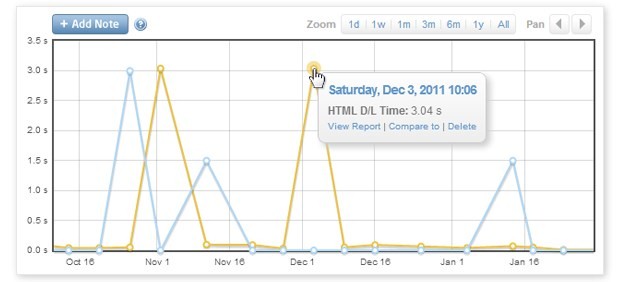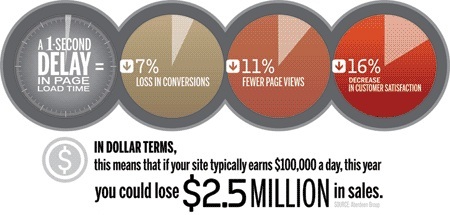Why and when do you need to speed up your E-commerce store? A newborn online store is usually fast. There is a very small number of items (and thus pages), there is no traffic, and there are no add-ons like auctions, “similar goods” or “occasional special offers”. E commerce website hosting has a small load and so everything ‘flies’. But a little later, more time is required to open the page, and here are some visitors who do not wait until the full load of the page and close the browser window.
Why is that happening?
The primary reason is simple, economical: large complex catalog of goods usually requires a special approach, individual programming. And when you start an online store at low budget, studios do a directory on a standard universal module, without time-consuming individual characteristics. This allows you to achieve profitability. For the first time, that’s fine.
After getting many goods, you are adding classifiers and sorting, additional properties for each product, and other complexities. As a result, for the issue of the catalog page, engine (CMS site) has to collect and sort a lot of information. Do not just show all the goods in sub-category, but, for example, to show products of several categories, with certain characteristics, and also show what other characteristics exist and what sub-categories they correspond to. And what kind of deals exist for the similar products. And preferably in order of popularity based on data from the last two weeks.
If there are thousands of products – this is the task not for one second, even for fast hosting. Now multiply this by the number of pages of the catalog and even the number of references to these pages, and here we have a server swamped with work. There are numerous online tools to check the speed of your webpages. Then work to speed up your E-commerce store.
Do you still think that the loading speed of your site is not important? No need to Speed Up Your E-commerce Store? You are wrong! According to the Aberdeen Group, just a one-second delay during boot, converts into a decrease in the number of page views by 11%, total customer satisfaction by 16% and the number of possible conversion action – by 7%.
Therefore, disdainful attitude towards technical optimization of an ecommerce site might have disastrous consequences on its effectiveness. In this article, we will share with you some tips to achieve a significant increase in the speed of loading pages.
Image Optimization to Speed Up Your E-commerce Store
With the help of graphic editors, you can achieve significant compression of the site images with almost no visible loss of quality. Moreover, it is not necessary to be the master of Photoshop, because there are many free tools with similar functions.
In addition, it is necessary, wherever possible, to use HTML and CSS instead of graphics. For example, the background and the other page elements.
Extra code removal to Speed Up Your E-commerce Store
Common used visual editors and generators make it easy to create web pages, but they also generate “garbage code” that may seriously affect the speed of the site. On such pages, every line of code increases the size of the page, and also some scripts can lead to various errors hindering load.
CSS optimization to Speed Up Your E-commerce Store
Instead of embedded style sheets, you can use the mechanism of connection from an external file; and to place a code for the call in the header. You can also combine images into CSS-sprites to contribute to optimization.
Enable compression on the server side, it will help not that much, but still will accelerate your downloads.
Redirects to Speed Up Your E-commerce Store
Redirects create additional HTTP-requests, increasing load time; therefore, you should reduce the number of such requests to a minimum. Do not use redirects unless it is necessary.
Additions to Speed Up Your E-commerce Store
As most sites use common CMS, many webmasters empower them by installing additional plug-ins and module. However, each additional component increases the burden posed by the site.
Therefore, whenever possible, it is better to implement the desired functionality directly into the template code, as it can significantly reduce the load.
Caching
This option is not suitable for news sources, updated every few minutes, but for most other types of sites it is a great solution.
Server setup
In case you have many visits to your website or online store, use VPS or dedicated server instead of a conventional shared hosting. VPS (dedicated server) provide more resources and are able to withstand tens of thousands of transitions from search per day. Another advantage of using such solutions is the ability to self-configure and optimize individual scripts and server-side components that may significantly increase the load speed if implemented competently.
Content
Avoid placing bulky objects on the site (e.g. flash), and do not overload it with superfluous and non-optimized graphics, such as the use of images in the background.
Hosting
In some cases, the site is loading slowly because of problems with hosting, or insufficient power resources. After all, it doesn’t matter how long will it take you to optimize your online store with thousands of unique visitors, it will not work faster on hosting for $ 5 per month. At the same time, it is enough to take a business hosting package, to increase the speed of the site, and still have enough reserve power for the future development.
Conclusion
Some of the tips we shared are easy to implement, others require specific technical knowledge, and in this case, you can use the services of managed hosting company. We can continue the list of updates to increase the load speed, but even a few edits t your code are enough to significantly increase the load speed of your website.
To your success!


